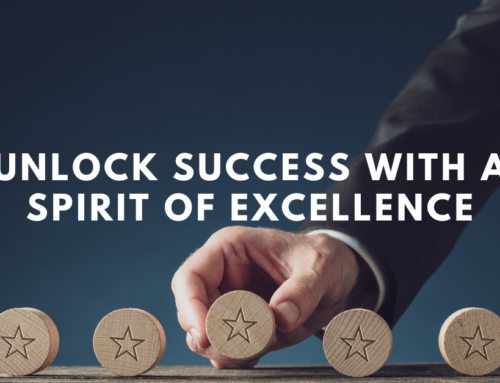Unless you’ve been living under a rock, you would know that the discourse on emotions has grown considerably in the last few years. Things such as mental health and being able to talk about your emotions are being deemed as increasingly important. This thinking isn’t just a phase we’re going through – in fact, it has always been important, and especially so in areas such as leadership.
One quality that people always look for in leaders is emotional intelligence. This trait is so highly sought after that it is often what sets the best workers and leaders apart from their peers.
After all, leaders get promoted not just for their technical abilities, but for possessing softer skills that allow them to rally people around a singular vision, effectively collaborate with others and give constructive feedback. In these cases, emotional intelligence can be a big difference maker.
What Does Emotional Intelligence Mean?
Emotional intelligence was popularised by psychologist Daniel Goleman. It refers to a person’s capability to assess their own feelings, and make decisions based on that. It entails recognising and influencing the emotions of the people around you while simultaneously ably managing your own.
So what can you do to be more emotionally intelligent?
Know Yourself
The first is exercising self-awareness, that is, being aware of your own emotions and principles. Part of self-awareness is also understanding your own strengths and weaknesses. By recognising these, you can then start identifying ways you can bring value to yourself and others.
Maybe you’ve been in a situation where your boss thought too highly of themselves, to the point that it made you not want to do any work. Those are the types of leaders you don’t want to be – the ones that are so conceited that they make you question how else you can contribute if they’re so good at what they do.
The key to leadership is in being emotionally intelligent enough to accept that there are things you can’t do and to not let these upset you. It is through being self-aware that one does not just grow as an individual (because now you know what to improve on), but also share in the growth of others. Being a leader means allowing the people you lead to help you.
Other People Matter Too

This brings me to the next component of emotional intelligence – social awareness. Being aware of your emotions means nothing if you aren’t able to understand the emotions of those around you.
Great leaders are the empathetic ones. They’re the ones who listen to the concerns of the people around them. And the best leaders? They’re the ones who go one step further and adeptly perceive the emotions around them and then make efforts to make sure their team feels safe, included and involved.
Early on in my career, I had a few terror bosses who would shout at me or wouldn’t let me take breaks from work. I used to think that this was me needing to toughen up. Yet while there might have been some truth to that, once I started my own businesses and became more self-sufficient, I told myself I would never end up like that. I wanted to be a leader who could think and listen with his heart.
Self-awareness and social awareness, combined with the ability to manage those things, make for great leaders. So no, emotions aren’t just for softies. They’re a crucial part of getting yourself and your team to the next level.
To your success,
Mario
[Visit www.mariosingh.com now to enjoy a FREE e-book of my latest “37 Essential Principles for Massive Success” when you subscribe!]





